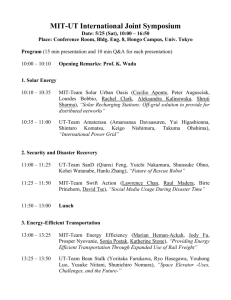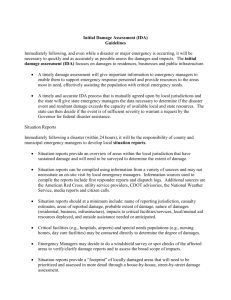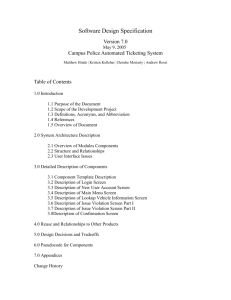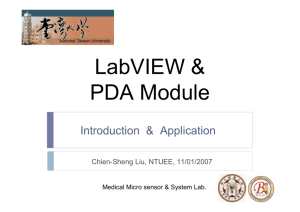State pda Guide for public Assistance
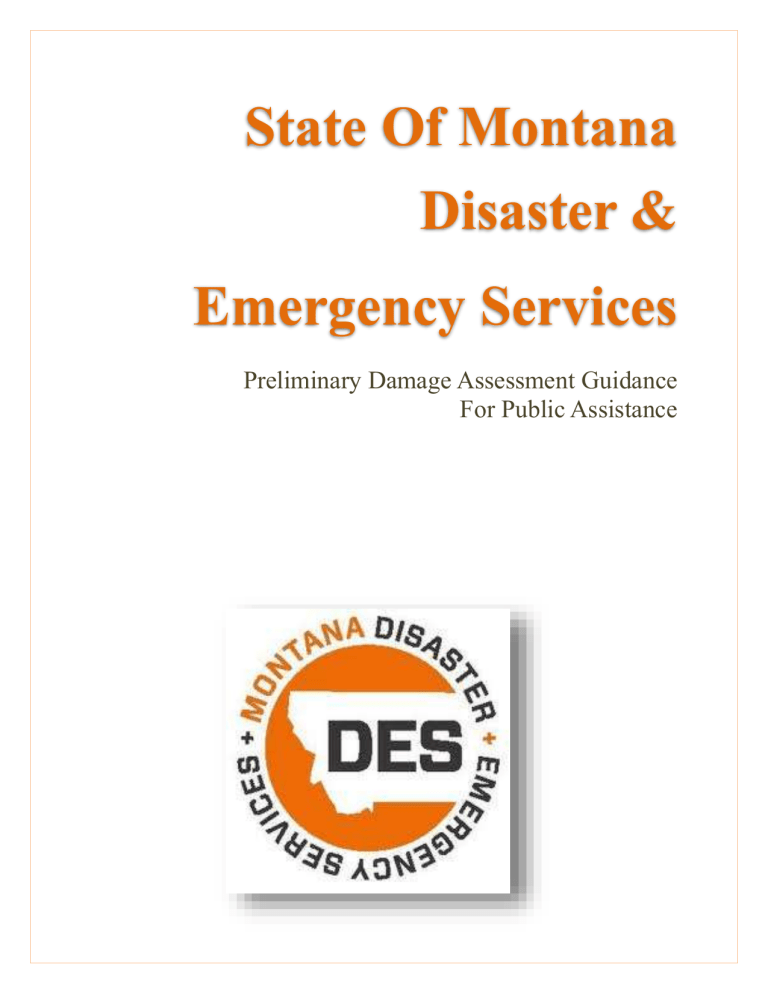
State Of Montana
Disaster &
Emergency Services
Preliminary Damage Assessment Guidance
For Public Assistance
What is a Preliminary
Damage Assessment (PDA)?
The PDA process is a mechanism used to determine the impact and magnitude of damage caused by a disaster.
A preliminary damage assessment team reviews the types of damage or emergency costs incurred by the local jurisdiction and the impact to critical facilities such as public utilities, roads, bridges and emergency response costs.
Who is on the PDA team?
Preliminary damage assessment teams are comprised of personnel from the State DES agency, the county and local officials.
How is the PDA Used?
The PDA is typically used as a basis for a Governor's
Declaration (state). The local jurisdiction provides cost estimates to be used in the official request for state assistance.
PDAs are considered, along with several other factors, in determining whether a disaster is of such severity and magnitude that effective response is beyond the capabilities of the affected local governments, and that
State assistance is necessary.
The Governor considers the PDA (i.e.…documents, pictures, costs, and site maps) as factors in making the
determination whether to declare a major disaster or emergency in response to the locals request.
How the State PDA team works for PA
PDA TEAMS
REQESTED
Information used
For Disaster Declaration
Public Assistance is conducted
DISASTER DOCUMENTATION
Document!!! Document!!! Document!!!
The importance of preliminary recordkeeping cannot be
stressed enough. It is very difficult to recall the resource costs associated with the early stages of disaster.
ACCURATE DOCUMENTATION IS NECESSARY
WHEN MAKING A CLAIM FOR
REIMBURSABLE EXPENCES.
Special attention should be taken to document the expenses affiliated with any and all emergency repairs: road, bridges, equipment or structures.
REFER TO THE DISASTER DOCUMENTATION
HANDBOOK
State Eligible Categories of Work for Public Assistance
Guidance for this can be found in the State of
Montana’s Emergency and Disaster Fund
Handbook for applicants.
CATEGORY A-Debris Clearance
CATEGORY B - Emergency Protective Measures
CATEGORY C - Roads and Bridges
CATEGORY D - Water Control Facilities
CATEGORY E- Buildings and Equipment
CATEGORY F- Utilities
CATEGORY G- Parks, Recreational Facilities and
Other Items
Return to the Table of Contents





